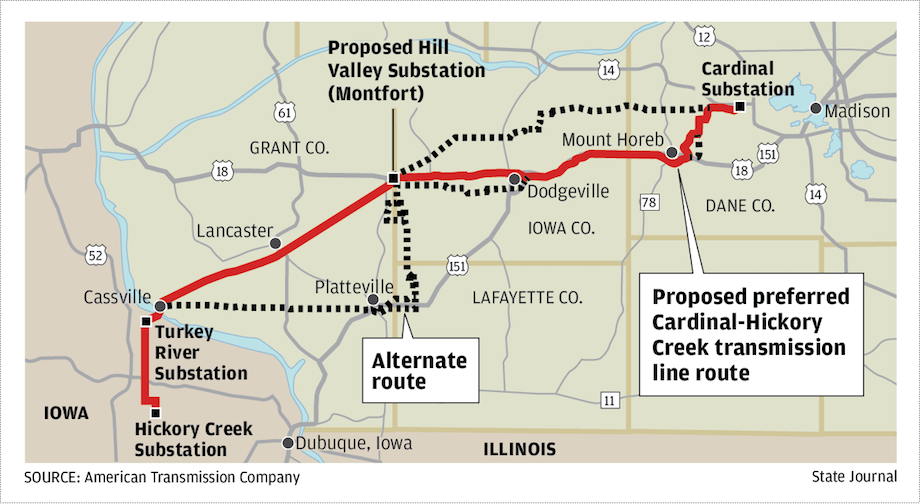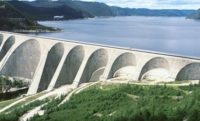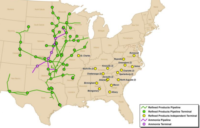A federal judge will decide in February whether to stop construction of a $492-million Iowa-to-Wisconsin transmission line, after issuing an opinion in mid-January “declaring” that federal rules preclude the 102-mile Cardinal-Hickory Creek project from crossing the 261-mile Upper Mississippi River National Wildlife and Fish Refuge by right-of-way or land transfer.
Four local environmental groups sued the US Fish and Wildlife Service, the US Army Corps of Engineers and the refuge manager for approving the line’s Mississippi River crossing through the refuge.
The American Transmission Co. and Dairyland Power Cooperative are building the line. They would not disclose the construction contractors.
In a Jan. 14 ruling, Judge William Conley in US district court in Madison, Wis., said that the federal agencies violated U.S. environmental laws designed to protect the refuge in approving the river crossing.
The project would run from near Madison, Wis., to near Dubuque, Iowa, crossing the river at Cassville, Wis. Grid operator Midcontinent Independent System Operator (MISO) identified the project as providing cheaper renewable power from the west to Milwaukee and Chicago and reducing power-line overloads.
RENEW Wisconsin, a non-profit group promoting renewable power, favors the line’s construction. “This critical project will enable renewable energy resources, like wind, to be developed where the resource is most abundant and inexpensive, and deliver it to where it is needed most,” the group said.
Conley said the federal decision to grant a right-of-way or land transfer to the utilities through the refuge would be arbitrary and capricious. The refuge runs along the river from Wabash, Minn., to southern Iowa.
The judge said the government failed to study alternative routes that are less environmentally damaging and also failed to obtain a compatibility determination as required by the Refuge Improvement Act, Ann Jaworski, attorney for the Environmental Law and Policy Center in Chicago, told ENR.
A compatibility determination must be issued by the refuge manager saying that a proposed use of a national wildlife refuge is a compatible use.
The particulars of the case are complicated and involve various proposed land exchanges and rights of way. Plaintiffs’ strongest claim is their challenge to Fish and Wildlife’s original compatibility determination, which granted the utilities the original right of way through the refuge, Conley said.
“The utilities switched tactics and asked for a land transfer instead, writing that the right-of-way determination would take too long," Conley said. Within a month of receiving that request, Fish and Wildlife fully withdrew its compatibility determination, citing previously undiscovered “errors,” he said, adding that since that time, the agency has made no effort to argue that the Cardinal-Hickory Creek project is compatible with the refuge.
“This quick switch of tactics, along with Fish and Wildlife’s abandonment of the compatibility argument, would certainly seem to suggest that the utilities are pursuing the land exchange in order to avoid a compatibility analysis, which they would likely lose,” Conley said.
The judge did not issue an injunction against all construction, and according to the owners, building work on the line leading to the original Mississippi River crossing is underway, beginning in April 2021 in Iowa and last November in Wisconsin.
“The utilities are pushing forward with construction on either side of the refuge even without an approved path through [it] in order to make any subsequent challenge to a refuge crossing extremely prejudicial to their sunk investment,” Conley said.
The opinion has no impact on the owners' ability to continue construction, they said in a joint statement. “The utilities are committed to completing this project, which will reduce energy costs, improve electric grid reliability, relieve congestion on the transmission system, support decarbonization goals and help support the interconnection of renewable generation in the upper Midwest,” they said.
Conley asked for briefings on Jan. 24, but they could be delayed until Jan. 31.
In a twist to the case, the Wisconsin Public Service Commission’s approval of the project is now before the state Supreme Court to determine whether a commissioner had a conflict of interest because of his ties with the power industry and his communications with representatives.
Two local environmental groups also claimed the commission did not follow state law, but the state trial court judge stayed that determination until after the state Supreme Court decides the conflict-of-interest case.
The lower court would not issue an injunction to stop construction in the meantime because the non-profit groups could not afford to pay the $32-million bond that was set.





Post a comment to this article
Report Abusive Comment